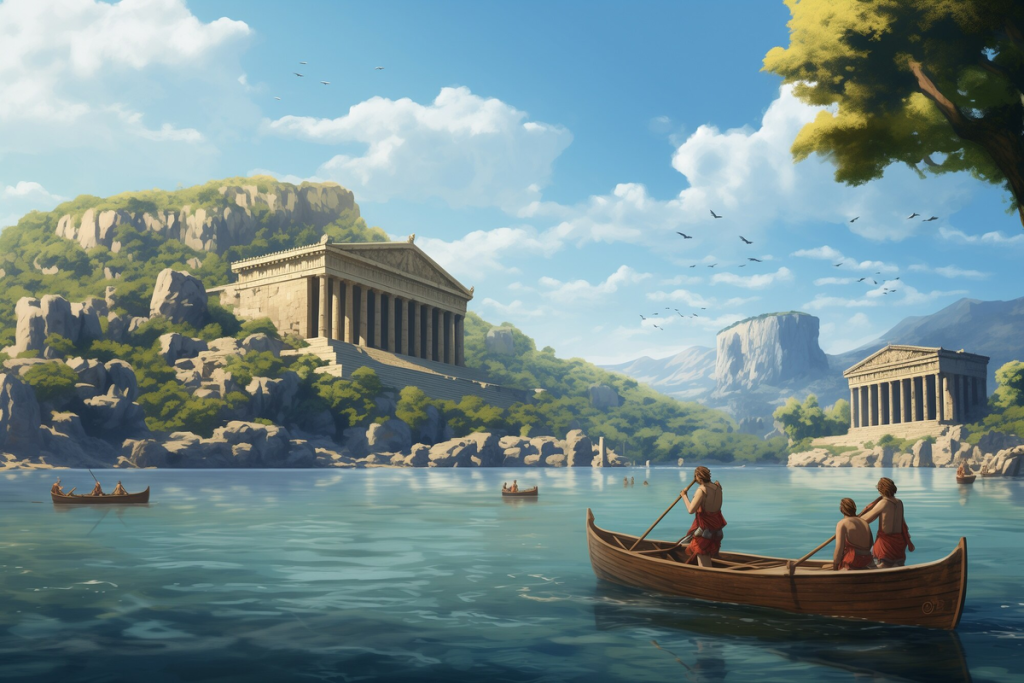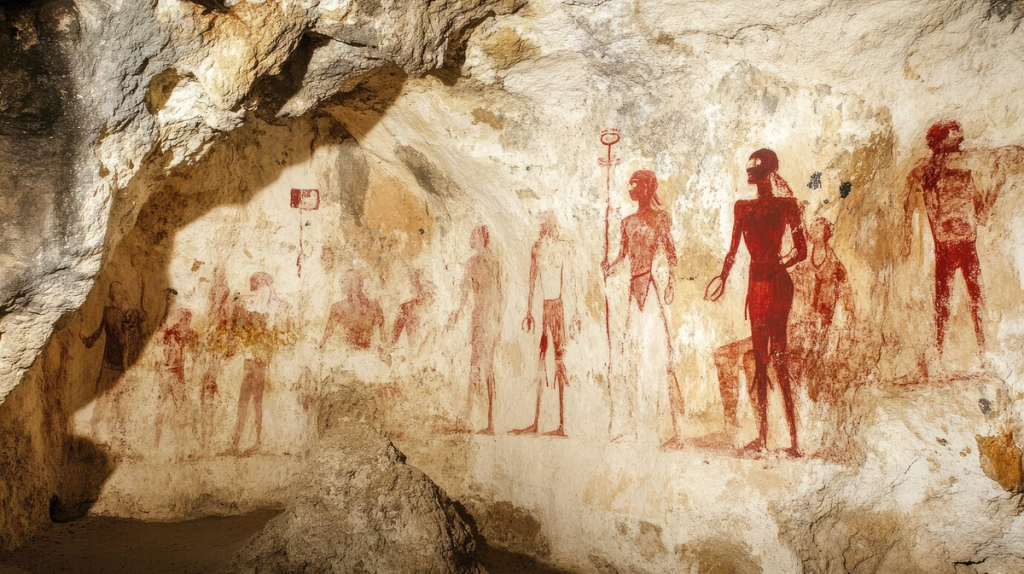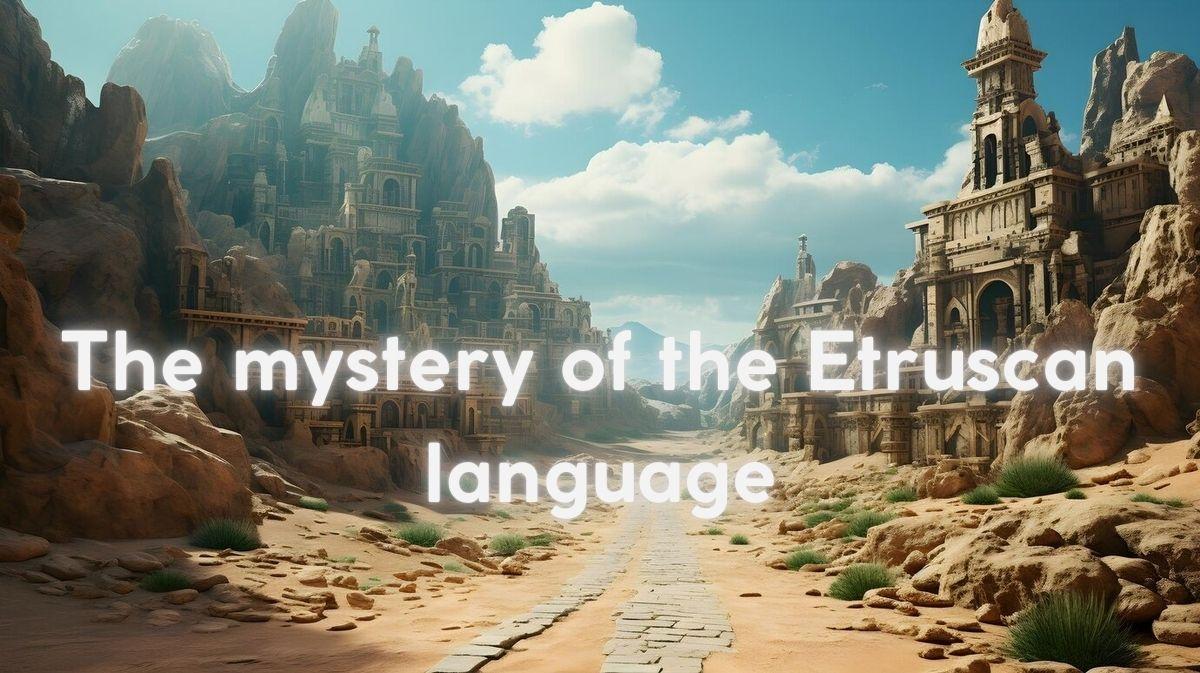Sometimes history leaves us with puzzles that even modern technology cannot crack. One such enigma is the Etruscan language. We know that the Etruscans were an influential and developed civilization; they built cities, traded, and created stunning works of art. But how did they communicate among themselves? What did they write on the walls of their temples and tombs? Despite the efforts of scholars, we still cannot answer these questions.

Where Did the Etruscans Come From and Where Did They Disappear To?
The Etruscans lived in what is now Italy—Tuscany, northern Lazio, and western Umbria. Their culture flourished between the 8th and 4th centuries BCE. Imagine walking down the paved streets of their cities, where artisans worked, merchants brought in expensive textiles and ceramics, and priests performed rituals that remain a mystery to us today.
But what is strange is that despite all their success, the Etruscans suddenly vanished, almost dissolving into the Roman population. Their cities were not destroyed, their people did not disappear in wars—they simply stopped using their language and culture.
Where Did They Originate From?
This is where another mystery begins. Scholars still debate where the Etruscans came from:
- First Theory: They always lived in Italy and simply developed their culture.
- Second Hypothesis, proposed by Herodotus, suggests that the Etruscans came from Lydia (modern-day Turkey). Genetics partially supports this: the Etruscans had Near Eastern roots.
- Third Theory proposes that the Etruscans migrated from Central Europe, possibly from the Alps.

What was the truth? We still don’t have a definitive answer.
Why Has the Etruscan Language Not Been Deciphered?
It seems straightforward: we have thousands of inscriptions, and even the alphabet is familiar—it resembles Greek! However, the challenge lies in understanding the meaning of these texts.
Firstly, the Etruscan language is isolated. Almost all European languages belong to the Indo-European family, but Etruscan does not; it is like an outsider among earthly languages. It has no relatives to compare it with, which means traditional deciphering methods don’t work.
Secondly, we have too few diverse texts. Most inscriptions are epitaphs, religious formulas, and short notes on everyday objects—there are no long texts, chronicles, or letters that could help us.
Thirdly, scholars have only managed to understand about 300 Etruscan words. Yes, we know how their numbers sound, the names of their gods, and kinship terms, but this is not enough to create a coherent translation.
Remember the Rosetta Stone, which helped decipher ancient Egyptian hieroglyphs? It had the same text in three languages, including Greek. The Etruscans have nothing similar, which complicates the task significantly.
What Have We Managed to Learn?
Despite all the challenges, some things about the Etruscan language have been discovered:
- They used a modified Greek alphabet to suit their needs.
- Their language was agglutinative—meaning they formed new words by adding suffixes and prefixes (like Finnish or Turkish).
- They borrowed Latin and Greek words, but their grammar remained uniquely distinct.
So, we can read the texts, but what they mean is another question.
How Did the Etruscans Disappear?
Initially, their civilization thrived, but then the Romans came: first, the Etruscans lost their independence, then became part of the Roman Empire, and by the 3rd century BCE, their language simply disappeared.

Why did this happen? The Romans actively promoted their culture, and Latin gradually replaced Etruscan. Since the Etruscans did not have a strong literary tradition (like the Greeks), their language vanished much faster.
Now, the Etruscans are not just an ancient people but a historical enigma. Perhaps someday scholars will find a way to fully decipher their language, and then we will learn what these people said, what they wrote in their epitaphs, and what secrets they took with them… But for now, the Etruscans continue to keep their main secret.
Unlocking Ancient Secrets with Modern Expertise
While the Etruscan language remains a mystery, other ancient languages like Hebrew and Greek require precise translation to unlock their secrets. ATT Translation specializes in providing high-quality translations that respect the nuances of these languages. From ancient texts to modern documents, our team ensures that every word is translated with historical and cultural sensitivity. Whether you need to decipher the meaning of a sacred text or communicate effectively in a modern context, we bridge the gap between past and present. Contact us to explore how we can help you navigate the complexities of ancient languages with precision and care.


Leave a Reply